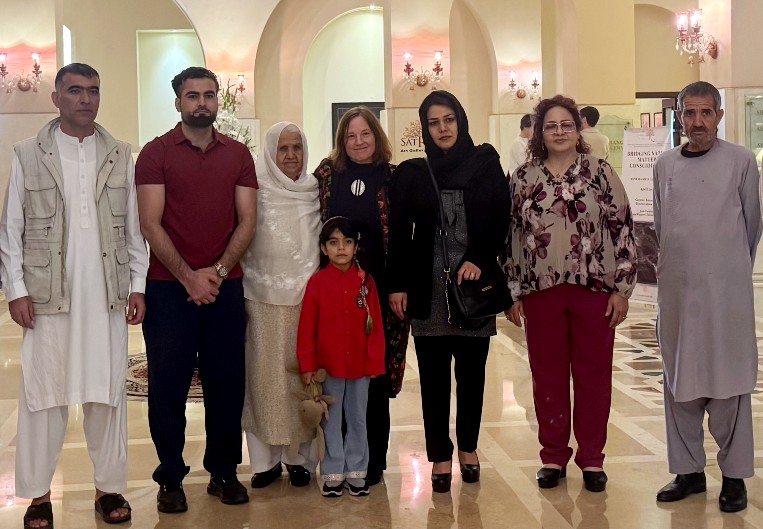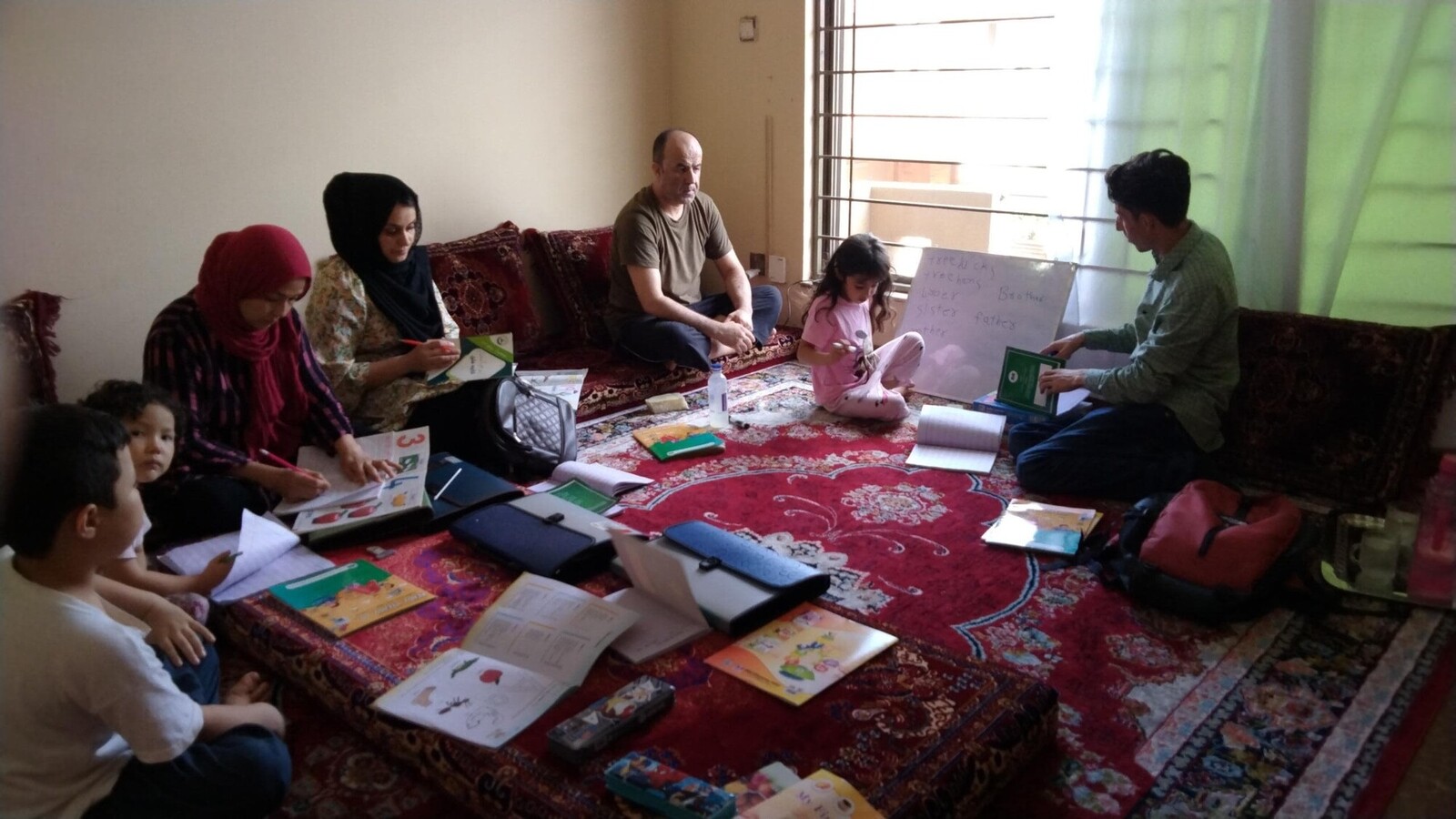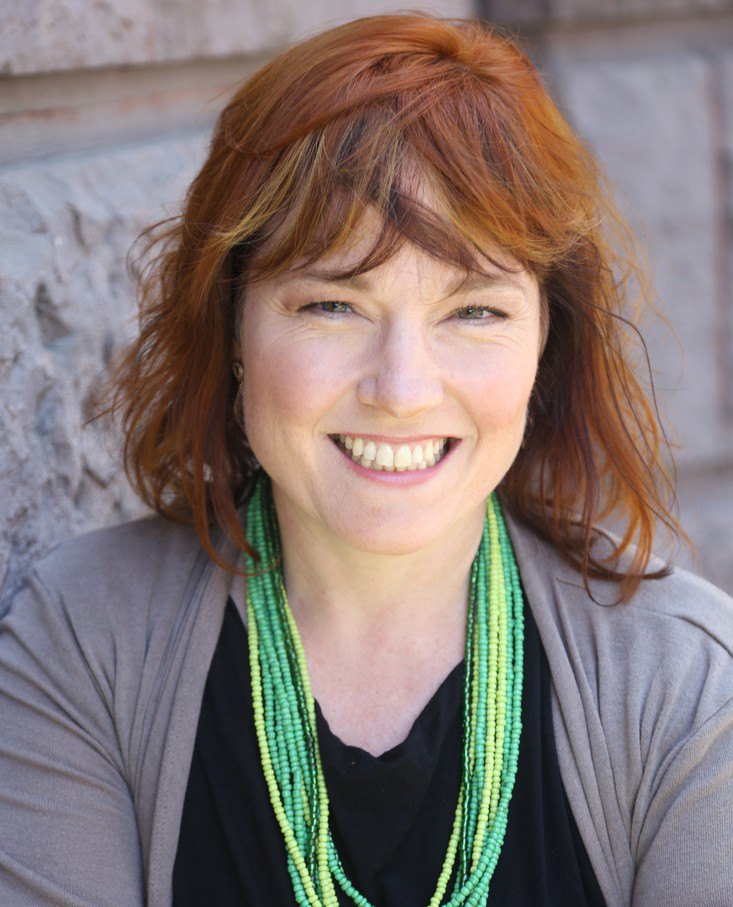
AFSC's Kerri Kennedy (center) with former AFSC colleagues and their family members who evacuated from Afghanistan.
In May, I traveled to Pakistan, where I met with dozens of former AFSC colleagues and their families. These are individuals whom we had helped evacuate from Afghanistan after the Taliban takeover.
It should have been a joyful reunion. Instead, it was a stark reminder of how the United States has turned its back on so many people seeking safety and refuge in our country. That includes people who risked their lives to support the U.S. during its 20-year military presence in Afghanistan.
Many international organizations, including AFSC, worked alongside brave Afghans who believe in democracy, women's rights, and human dignity. Through my work with another organization at the time, I trained women members of Parliament for the 2009 elections. It was a time of incredible potential and change.
The U.S. made a promise to those who worked with the military and organizations to provide protection from the Taliban and asylum in the U.S. if they were ever at risk. Four years after the U.S. withdrawal from Afghanistan, those promises ring hollow.
Last year, AFSC was able to evacuate 65 former staff and family members from Afghanistan. Among them was 75-year-old Maryam Amini, who worked as a custodian in our Kabul office. Maryam endured three years of terror under Taliban rule, moving frequently to escape constant searches and threats. Now she lives safely in Pakistan with her children and grandchildren. With support from AFSC, they have been seeking asylum in the United States.

A photo of Maryam's family during an English class in Pakistan lsat year.
Unfortunately, Maryam and so many others who fled Afghanistan now face an uncertain future. The Trump administration’s anti-immigrant policies have effectively shut the door on nearly all people seeking safety and refuge in the U.S. It has become impossible to bring our former colleagues here. They do not want to remain in Pakistan indefinitely, yet they now fear being forced to return to Afghanistan, where they would again be in danger.
The U.S. abandonment of our Afghan allies represents a profound moral failure. Nearly every veteran and aid worker who served in Afghanistan carries stories of people they desperately tried to help escape—usually unsuccessfully. The international community has largely remained silent as these pathways to protection have closed.
As I sat with our former colleagues in Pakistan, I saw resilience and hope despite all they have faced. At AFSC, we refuse to abandon our commitment to these courageous individuals. We are continuing to support them in Pakistan, providing housing, food, medical care, and educational opportunities while we explore every possible avenue to ensure their long-term safety.
But our efforts are no substitute for the protection that the U.S. government should provide.
Our Quaker values teach us that every person has inherent worth and dignity, regardless of where they were born or how they came to need protection. The right to seek asylum is a fundamental human right that reflects our deepest moral obligations to one another.
Today, it is up to all of us to continue demanding that our government uphold this right for our Afghan allies and all who seek safety in the U.S. We must continue to advocate for fair and welcoming immigration policies. And we must keep pressuring our elected officials to support peaceful solutions that help people worldwide live safely wherever they are.
Maryam and all people seeking safety and a better life deserve nothing less.
